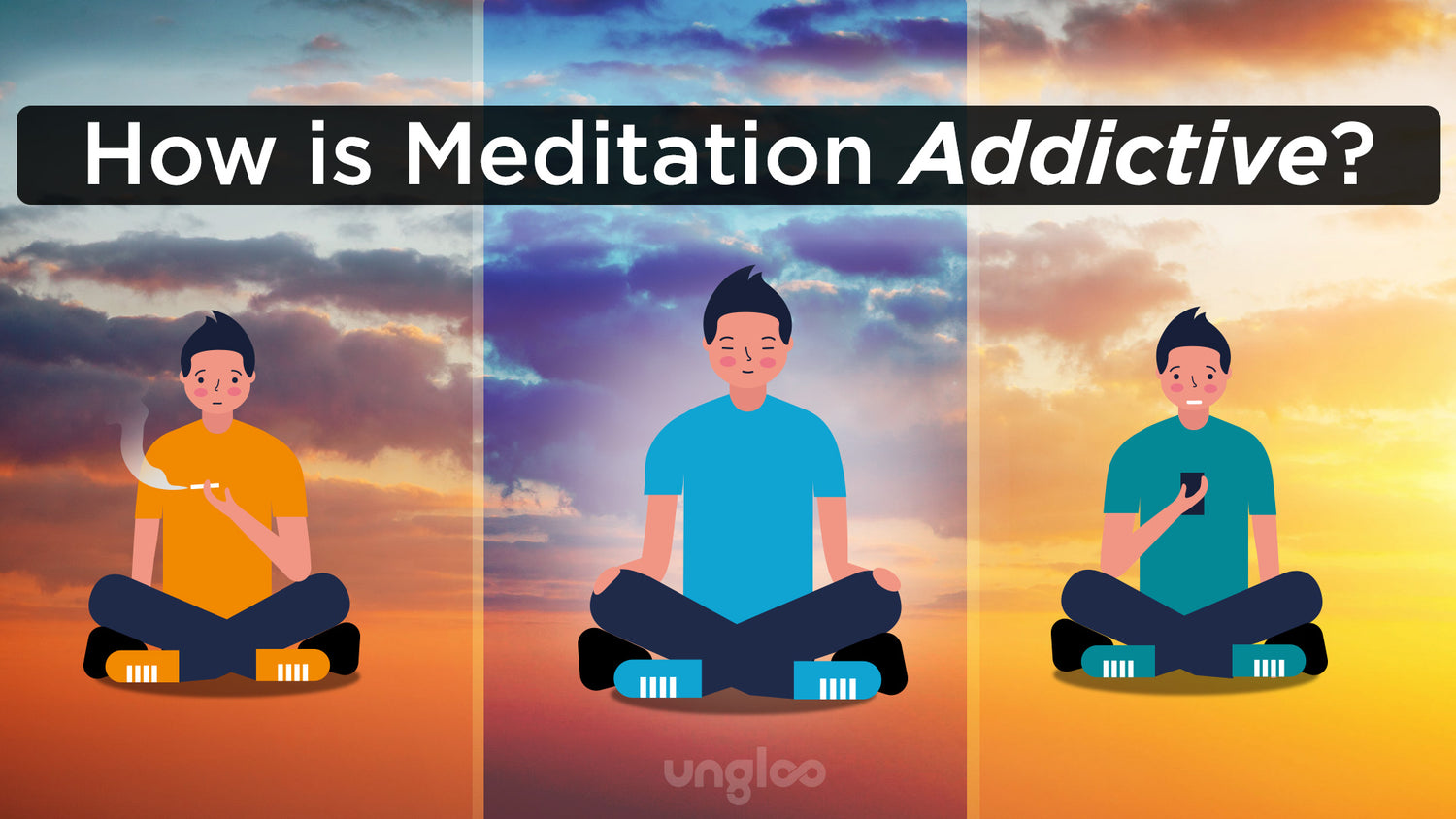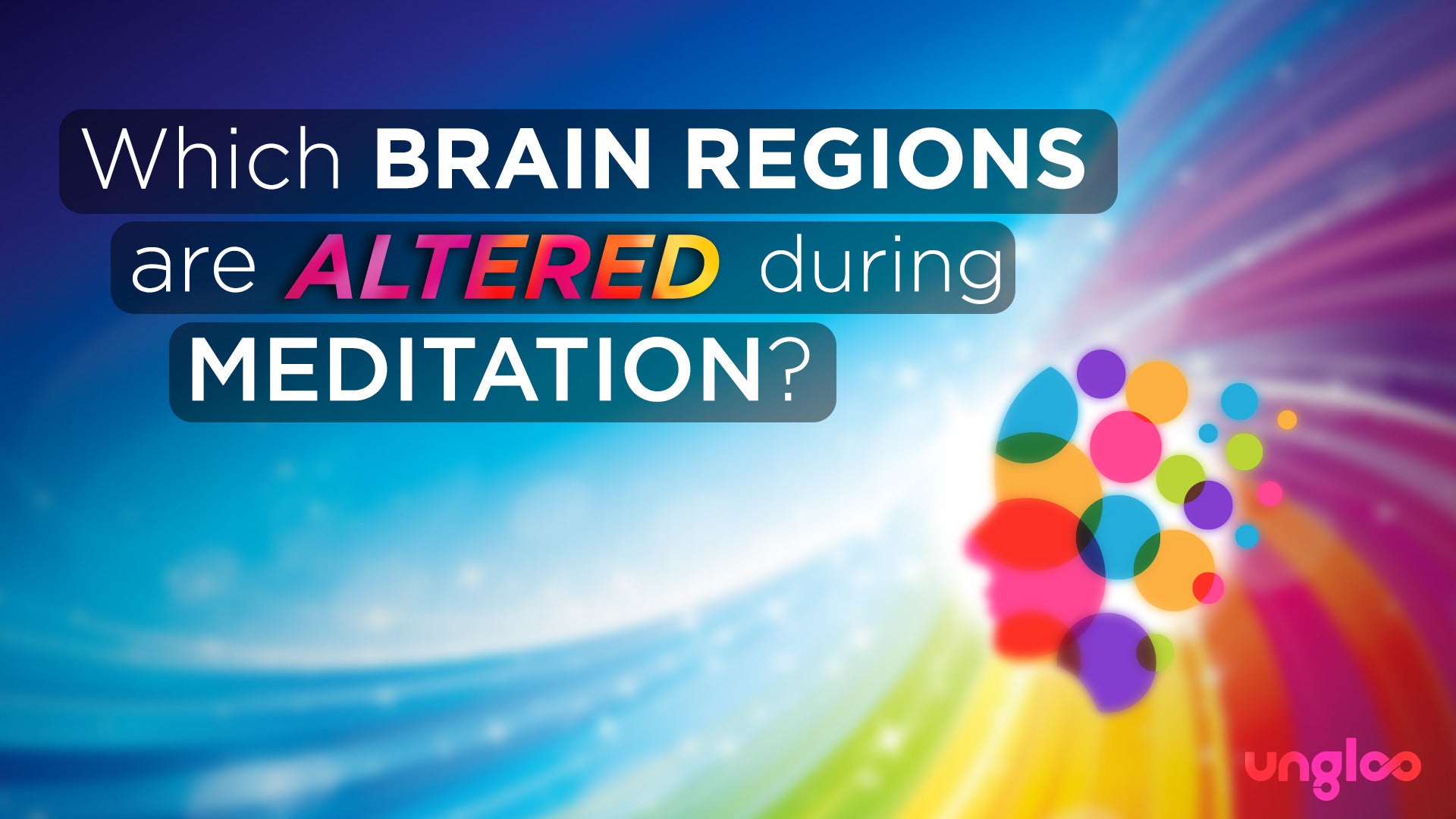When we hear the word "addiction," unhealthy things automatically come to mind. When someone is addicted to something negative, like drugs, alcohol, or social media, they're harming their physical and mental health. They're unable to free themselves from the vices that control them.
But what about meditation? Meditation makes your mind and body feel good, so is meditation addictive? If so, would this also be considered an unhealthy addiction?
We're here to talk about why being "addicted" to meditation is actually a good thing and how you can start your own meditation practice today. Read on to learn more.
Are All Addictions Unhealthy?
From a clinical standpoint, literal "addiction" is never a good thing. When we're discussing becoming addicted to meditation, we're referring to being consistent with a meditation practice so it can improve our lives.
When most people think of addiction, they think of things like social media, drugs, and alcohol. While any of these things can be acceptable in moderation, they can take over the brain until they become problematic.
They impact your brain's pleasure center. For example, if you struggle with social media addiction, each notification that you get will trigger a small burst of dopamine. This makes you feel good and keeps you hooked on your social media apps.
Addictions are unhealthy because they get in the way of your day-to-day life. They negatively impact you and the people around you.
Being addicted to meditation, however, is different. It's unlikely that meditation will get in the way of your life or responsibilities. It can even help you conquer other more dangerous types of addiction as long as you stay consistent.
An addiction to meditation isn't a true addiction. It's a lifestyle change that you can make to improve your life.
Is Meditation Addictive? Benefits of Meditation
So why can meditation get so "addictive" if it doesn't have the harmful effect on your body that drugs, alcohol, and social media can have?
It's because there are so many benefits of meditation. You don't have to rely on escapism via drugs, alcohol, and social media when you're healing your mind with meditation.
Here are a few benefits that you might discover after you start a consistent meditation practice.
Can Help With Harmful Addictions
If you're already struggling with an addiction, meditation is a great thing to add to your daily routine. While meditation won't prevent addictions from forming, it can help make the recovery process easier.
When you meditate, you can learn how to cope with potential addiction triggers. Instead of resorting to the substance or activity that you're addicted to, you can let the triggers "wash over you" instead of letting them force you into your bad addictive behavior.
Meditation gives you something to do with your quiet time, and it makes that time feel more worthwhile. You won't be turning to your phone for entertainment when you're bored if you also have the option to sink into a meditation session.
When you meditate, you become "bigger" than your addiction. You can combat stressful withdrawal symptoms and heal more quickly. This is one of the top reasons that many mental health professionals recommend meditation for addiction therapy.
Improves Mindfulness
"Mindfulness" might seem like a buzzword in 2022, but it's popular for a reason. When you display mindfulness, you're really living "in the moment."
Most of the time, you move through the world without thinking until something stops you in your path. How often do you really take time to notice the sensations surrounding your body? When do you stop to look at your environment and appreciate the current moment?
Mindfulness meditation forces you into the present.
Reduces Anxiety and Stress
If you've been struggling with stress and anxiety over the past few years, you're not alone. It's been difficult for all of us, and many people are experiencing burnout. Meditation is a great solution to this problem.
When you meditate, you distance yourself from the stressors of your day-to-day life. You check in with yourself and let your concerns drift away, at least for the moment.
Meditation also requires deep breathing. Breathing exercises are fantastic for activating your parasympathetic nervous system and calming you down.
If you're feeling anxious and you're not sure of the cause, you may even find your answer while you're meditating and connecting with yourself.
Improves Patience
In our fast-paced lifestyles, it's easy for patience to wear thin. You have so much to do and so little time! Why not stop and take a break to meditate?
At first, meditation will feel uncomfortable. You'll feel like there are so many other more productive things that you should be doing. Why are you waiting around when the world is still turning and you're burning daylight?
When you accept that discomfort and continue to meditate, you'll find that you become more patient with yourself and the people around you. Everything will seem far less urgent.
It's Self-Care
Meditation isn't a punishment or even a mental health treatment. It's a form of self-care. Self-care is essential if you want to live a happy and healthy life.
Even though it's difficult at first, when you block out time for meditation, that's your time. You're not giving it to your employer, your friends, or even your family. You're giving yourself an important gift.
Meditation is no less important than any other form of self-care.
Enhances Creativity
If you've been feeling creatively blocked, meditation might be a good solution.
In a world in which we're constantly inundated with things to do at look at, being creative and coming up with unique ideas is challenging. You need to disconnect from the noise around you and reconnect with your inner self.
This doesn't mean that every meditation session is going to lead to a new piece of art or creative writing. You're just opening up potential creative channels for yourself.
How to Start a Meditation Habit
So how do you start meditating? If you're like most people, you've tried sitting cross-legged in a quiet room to "meditate" but it never really caught on. You couldn't break through that initial barrier.
Once you get started, you won't want to stop. Here are a few tips for starting a meditation habit that you can stay consistent with.
Schedule Meditation Time
Treat meditation like you'd treat anything else that you want to do. Plan time for it in your schedule. If you keep a physical or virtual planner, block in meditation just like you'd block in work, meals, or your workout.
At first, you can try to meditate a few days per week. Meditating once per day is a good goal, but it might be overwhelming when you're a beginner, and you could end up getting frustrated or overwhelmed.
No matter what, try not to skip your scheduled meditation time. Even if you only meditate for a few minutes instead of the entire hour, it's better than nothing and it will help you form that habit.
Find Tools That Work for You
In truth, you don't need anything aside from yourself and a quiet place to meditate. You can, however, improve your practice with a variety of tools.
Some people like listening to gentle sounds while they meditate. Others like guided meditation practices, at least while they're getting started.
You may want to make yourself more comfortable with a meditation chair or a soft cushion that you can sit on.
Try a variety of different "tools" that you can add to your meditation practice and see what works best for your needs.
Be Gentle With Yourself
While you're going to be forcing yourself to meditate at first (trust us, it will come naturally once you've made it into a habit), that doesn't mean that it should be unpleasant. You need to be gentle with yourself and honor your own abilities and time.
If there's a day in which meditation isn't convenient, like if you fall ill or there's a sudden responsibility to take care of, don't force yourself to meditate anyway. Take it as a sign that it's okay to take a day off and try again tomorrow.
If you're not gentle with yourself, you may burn out on something that's supposed to be fulfilling and relaxing.
Be Consistent
Consistency is key. When you fall off the meditation wagon, hop right back on again. Don't let one missed day turn into a week of misses.
Whenever you're trying to build a new habit, you need to stick with it until it feels natural. As long as meditation fits into your schedule and you're feeling well enough to do it, give it a try even if you're not in the best mood.
Soon, you'll discover that you'll be moving other things out of your schedule to find more time to meditate!
Have You Meditated Today?
So is meditation addictive? Yes and no. It's not addictive in the same way that drugs, alcohol, and social media can be addictive, but it is something that you can learn to love.
If you keep up with a steady and consistent meditation practice and start reaping the benefits, you may feel like you're addicted to it! Don't worry, it's healthy.
Are you looking for something to enhance your practice? Why not try one of the supportive meditation products in our store? Find your new favorite meditation aide today.



![The 7 Best Meditation Apps in 2023 [UPDATED]](http://ungloo.com/cdn/shop/articles/Best_Meditation_APPS.jpg?v=1647733984&width=1920)